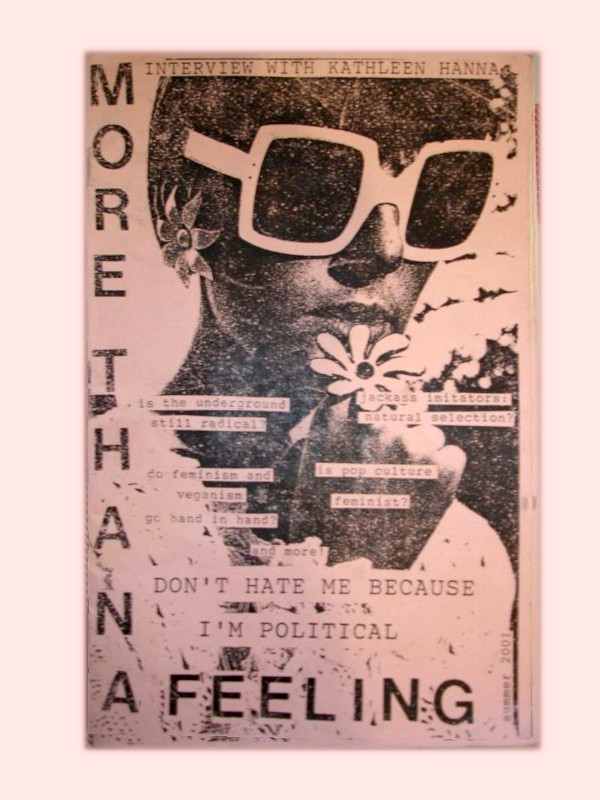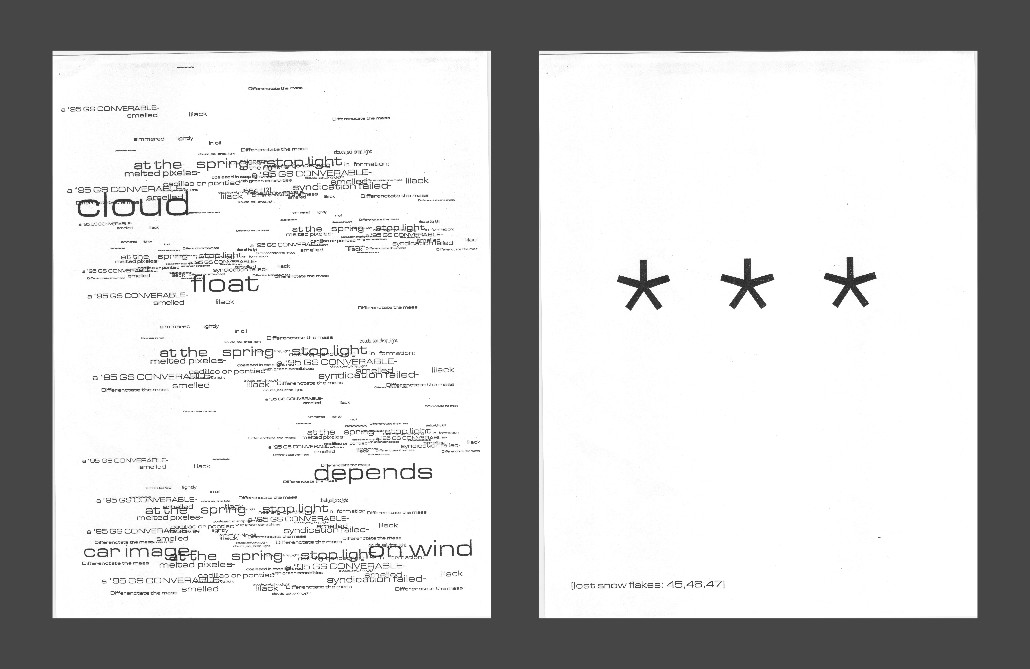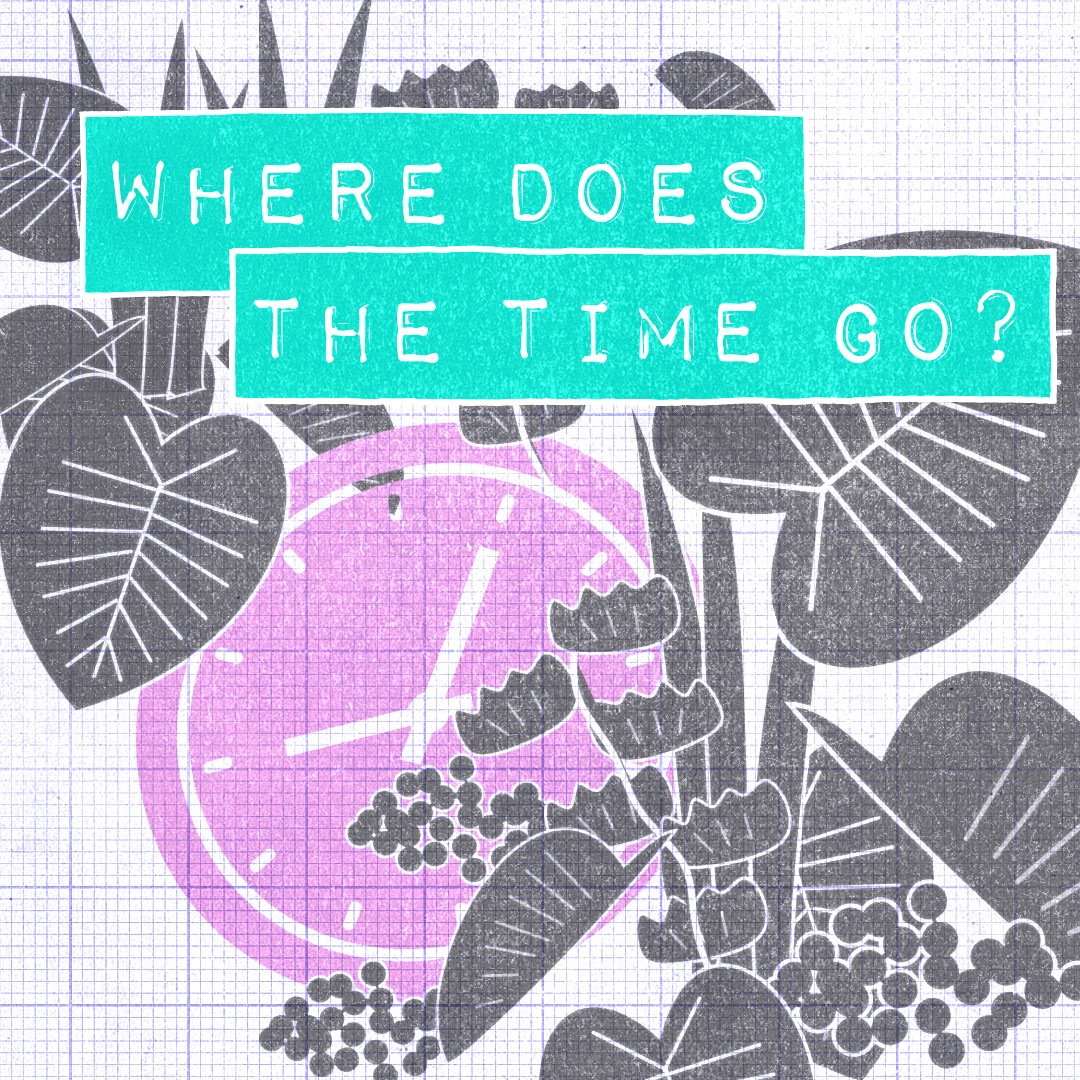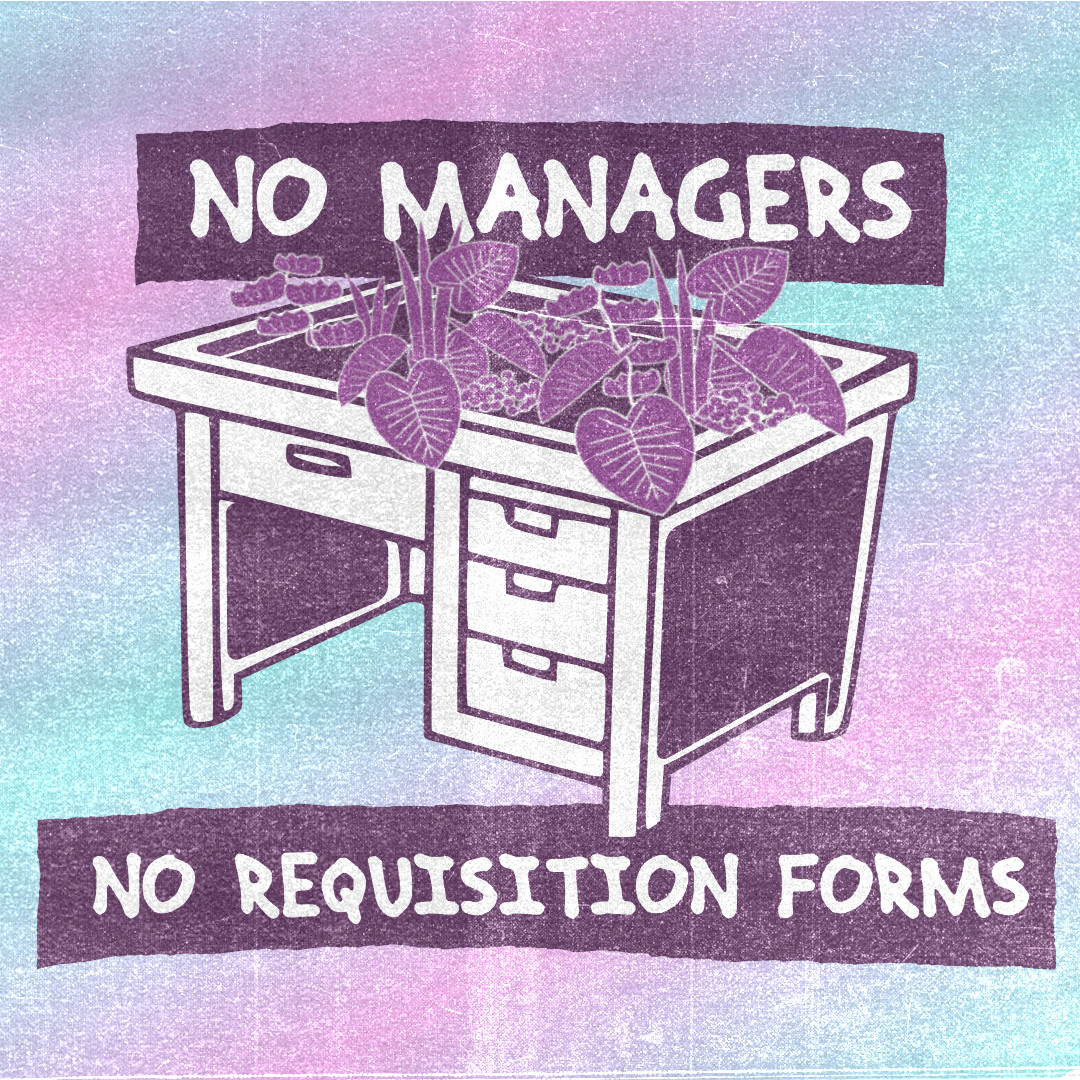Friends! It’s been longer than I’d expected since my last post. I’m sure I had reasons— was it the time spent vacuuming up glitter during my kids’ school vacation? Or the stomach bug we all got (including the cat)? Was it a change in meds that made thinking hard? It might just be that I got an electric guitar for the first time in decades and have spent every free moment playing the riff from the Dinosaur Jr song “Feel the pain.” Probably all of those things.
Also, ten times (!) the usual number of people read my last post and I psyched myself out trying to write a really good follow-up. So I got too precious and wrote nothing.
But I found a good antidote to preciousness— bringing to mind the zine ethos. In a fit of meta-procrastination from writing a post I went deep into books about zines and found some great inspiration.
A better world is possible. Subscribe to learn how to build it!
Late nights at the copy shop
A zine is like a magazine, but without time for the extra letters. They are usually small, self-published booklets, with circulations in the 1-1,000 range. Often they are photocopied, ideally late at night at Kinkos by a buddy who works there and doesn’t keep careful count of the copies.

Self-published booklets have long been part of every underground, independent scene. They were part of the labor movement, Black liberation, the rise of rock and roll and later punk, queer culture and politics, science fiction fandom, and pretty much any group with a marginalized identity or uncommon interest. Not to mention the reams of more personal creations that have circulated among friends. Zines have been at the intersection of underground culture and print technology since the term was coined in the 1930s (as a shortening of “fanzine,” which was a shortening of “fan-created magazine”). There’s been a zine revival almost every decade since.
Here’s a short documentary about the contemporary zines in the Bay Area:
Everywhere I wanted to be
When I was in high school and college in the late 90s and early 00s, zines were a ubiquitous part of the background that only occasionally came into focus. They were kind of everywhere, or at least everywhere I wanted to be. They were at shows, coffee shops, record stores, book stores. Sometimes I mailed stamps to people so they could send me a photocopied booklet of reviews of albums that I’d never find in the store.

In high school, I made a few self-published booklets myself. I had no funds for copies and didn’t know anyone who worked at a copy shop, so I walked into the teachers’ lounge one afternoon, got a ream of paper from the supply cabinet and started copying, as if I was definitely supposed to be there. I spent weeks handing them out to every single person I talked to.

Democratic and Weird
There’s a lot to love about zines.
I love the “classic” zine aesthetic— the hand drawn lettering, typewriter text, cut-and-paste layout, the photocopy artifacts.
Even more though, I love the underlying ethos of zines. They are a great example of the Do-It-Yourself (DIY) ethic. They are democratic, messy, personal, and weird. Zines give me the feeling that it’s not a rare thing to have something worth saying. In more mainstream media settings, there’s a big emphasis on the superstars, geniuses, best-sellers, break-out sensations. Not so with zines. A few zines have become big (Bust, Slate, Giant Robot), but that’s not the rule, and I get the sense that it’s not really the expectation or goal. The focus is much more on creating something you think is cool and connecting with other folks with similar perspectives.
It reminds me of going to small DIY punk shows when other people in the audience would ask me which band I was in. It’s not that I looked like someone who was in a band, it was just the assumption that everyone is (or ought to be) in a band. I even ended up in a few bands that way, most of which existed for all of one afternoon.
There’s a broader lesson in all this. There are so many areas of life where folks are encouraged to leave things to the experts or where only extraordinary folks are expected to make a valuable contribution, from plumbing to politics. Or where only big results are valued. What would it mean to embrace small-scale, enthusiastic contributions instead?
In the meantime, I’m trying to bring to mind that feeling I had when I marched into the teacher’s lounge to photocopy my booklet or tuned up the guitar I could barely play to stumble through someone’s spiral notebook full of pop-punk songs on a Sunday afternoon.
And hey, look. Here’s a newsletter I wrote in the meantime.
If you want to dive deeper into zineland:
Recent(ish) Articles
Kero, River H. “A History of Zines.” BOOK RIOT (blog), December 2, 2021.
Merrilees, Kristin. “Zines Are Back. And Now They’re on Instagram.” The Startup (blog), July 2, 2020.
Camelia Heins, “Generation Zine: Why the Revival of Zine Culture Is Crucial Today” New University, UC Irvine, January 8, 2022
Jessie Schiewe, “Zines Are Popping Up in Public Libraries Across the U.S.” OK Whatever, March 4, 2019.
Jenna Freedman, “Are Zines Blogs?” Barnard College.
How to make a zine
Wrekk, Alex. Stolen Sharpie Revolution: A DIY Resource for Zines and Zine Culture. Sixth edition. Portland, Oregon: Lunchroom Publishing, 2020.
Biel, Joe, and Bill Brent. Make a Zine!: Start Your Own Underground Publishing Revolution. Fourth edition. 25th anniversary edition. Updated&Expanded. Microcosm (Microcosm Publishing). Portland, OR: Microcosm Publishing, 2022.
Todd, Mark, and Esther Pearl Watson. Whatcha Mean, What’s a Zine?: The Art of Making Zines and Minicomics. Boston, Massachusetts: Graphia, an imprint of Houghton Mifflin Company, 2006.
History of zines
Darms, Lisa. The Riot Grrrl Collection. New York: Feminist Press, 2013. http://www.nyu.edu/library/bobst/research/fales/riotgrrrltest.html.
Duncombe, Stephen. Notes from Underground: Zines and the Politics of Alternative Culture. Third edition. Portland: Microcosm Publishing, 2017.
Piepmeier, Alison, and Andi Zeisler. Girl Zines: Making Media, Doing Feminism. New York: New York University Press, 2009.
If anyone has any suggestions of zines I should read, let me know. I have a stack of forever stamps that I’m ready to send out!

I’d love to hear from you. What’s your vision for a living world? What projects and ideas are you excited about? What topics do you want to see here? What am I missing? Let me know in the comments!



